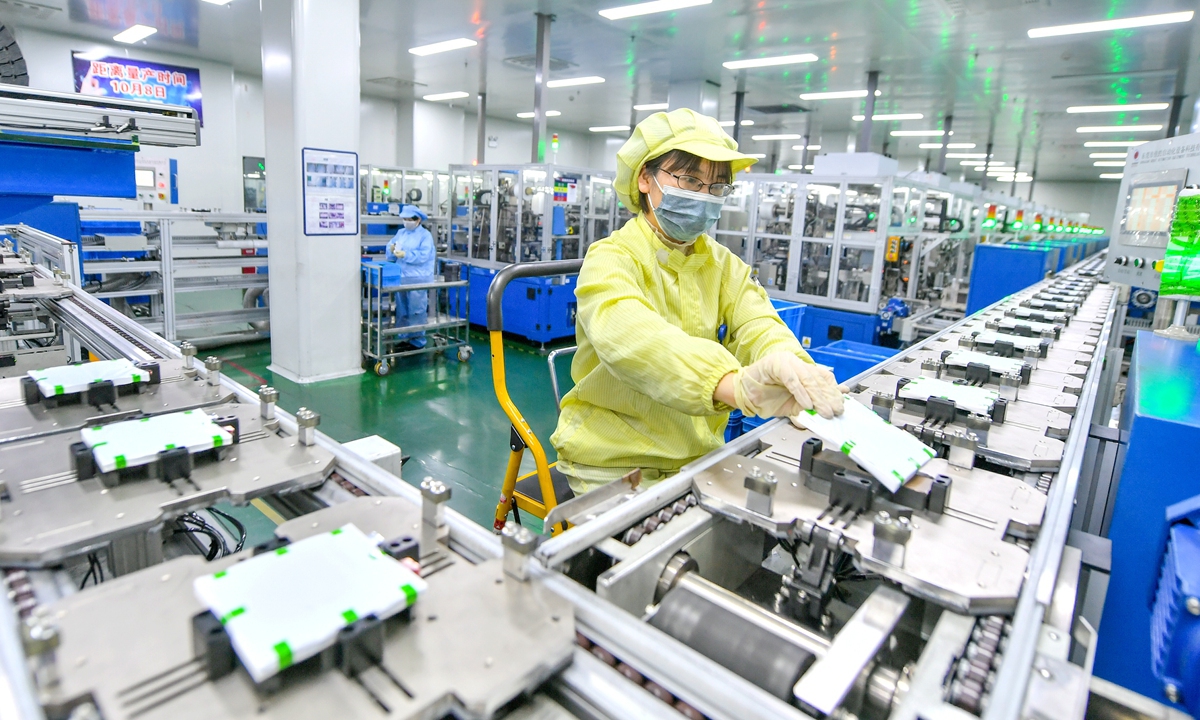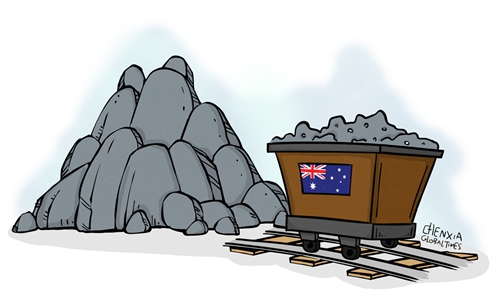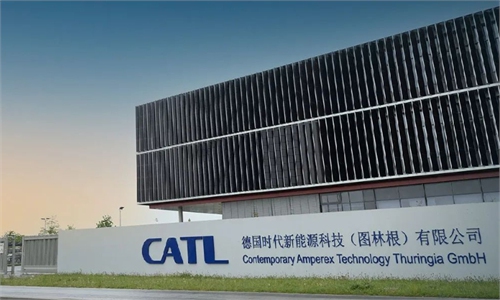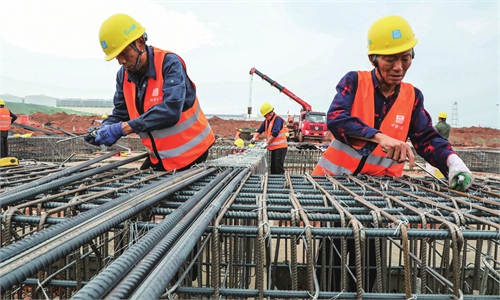
A worker at a lithium battery factory in Huzhou, East China's Zhejiang Province Photo: cnsphoto
Chinese new-energy material giant Tianqi Lithium Corp has offered a deal of more than $90 million to buy Australian lithium developer Essential Metals (ESS) in an apparently encouraging sign of cooperation between the two nations in the new-energy sector, and experts expressed cautious optimism that Australian authorities will approve the deal, given the thaw in bilateral relations.
According to a filing by Tianqi Lithium to Hong Kong Exchanges and Clearing on Monday, the company's subsidiary - Tianqi Lithium Energy Australia - has signed an agreement to buy ESS.
The deal will help Tianqi Lithium to replenish its lithium mineral reserves and is in line with the company's development strategy and international business plans, the filing showed.
The deal needs approval from ESS' shareholders and government departments including the Australian Securities and Investment Commission and Australian Securities Exchange.
If the bid succeeds, Tianqi Lithium will take over ESS' resources including the Pioneer Dome project in Western Australia, an undeveloped mine with estimated total reserves of more than 100,000 tons of lithium, as well as several gold mines.
ESS has 11.2 million tons of lithium resources, of which as much as 71 percent could be utilized.
Lithium is an important material for producing new-energy batteries.
Chinese investment in Australia began to plummet around 2020 amid worsening diplomatic disputes, but relations showed signs of improving recently, and experts are optimistic about the deal being approved, although uncertainties exist.
"The deal itself is a promising sign that China and Australia are emerging from a political impasse and resuming cooperation. It could also be a prelude to comprehensive bilateral cooperation this year," Chen Hong, president of the Chinese Association of Australian Studies and director of the Australian Studies Centre at East China Normal University, told the Global Times.
According to Chen, Australia and China have shared interests and complementarities in the new-energy sector. Australia has resources and China has advantages in mineral exploitation technologies, while both countries aim to cut carbon emissions.
A recent Reuters report noted that China Energy Investment Corp had placed an order to buy coal from Australia in one of the first deals since 2020, another sign of resuming business cooperation.
"There are signs that Australian officials are starting to look at long-term development and approaching diplomatic issues from a more pragmatic perspective compared with the Morrison government," Chen noted.
While the political environment seems to be improving for bilateral economic cooperation, experts warned that Chinese companies need to have contingency plans for further changes in the global lithium industry. Those changes could include the establishment of a "lithium triangle OPEC" in certain Latin American countries and pressure from the US.
China needs to promote technological progress in the lithium industry chain, seize the opportunity to carry out technological transformation and further reduce dependence on external lithium resources, said Chen Jia, an independent research fellow on international strategy.
Upstream merger and acquisition deals are an inevitable stage in the development of the new-energy materials industry, as this field has gone through a period of extensive growth and entered a period of industrial restructuring, he said.
"Whether from the perspective of the new-energy industry and supply chain stability or the need for new-energy vehicle makers to control costs, the competition in the new-energy industry chain will further expand to upstream industries," Chen Jia noted.




